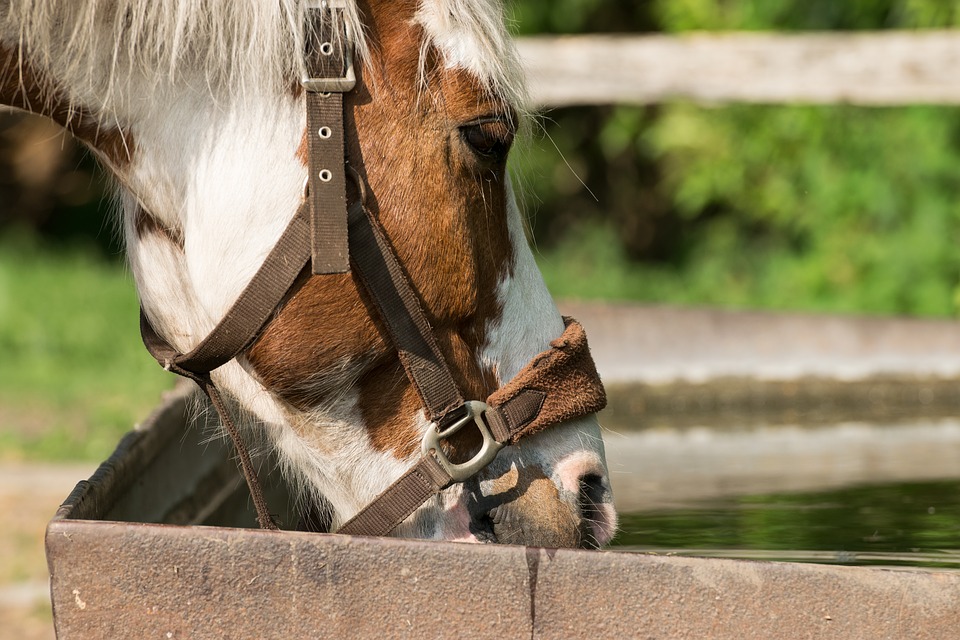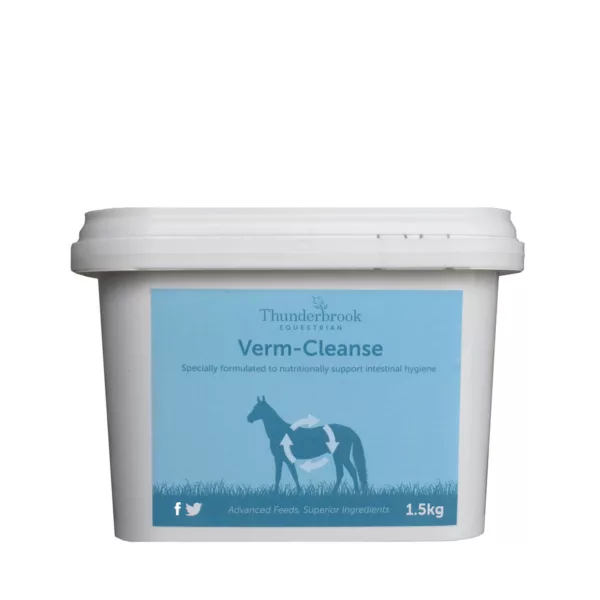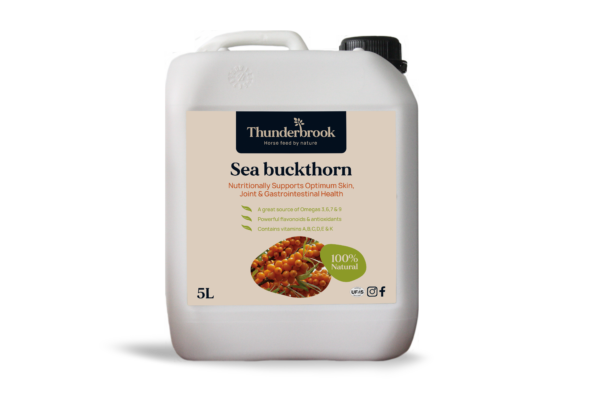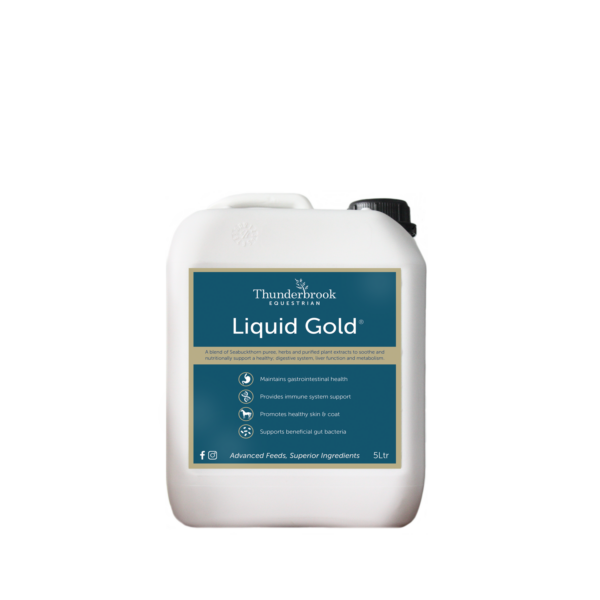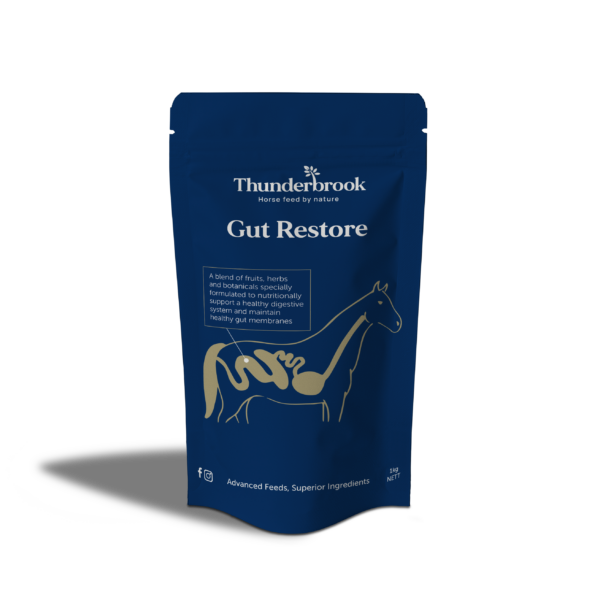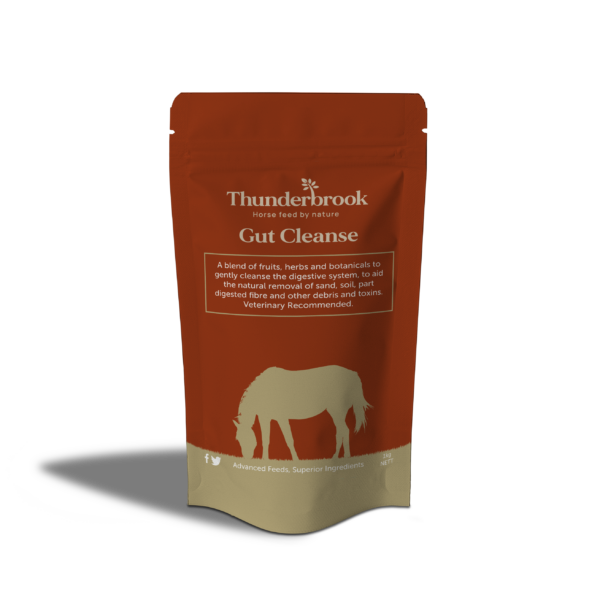Faecal water and diarrhoea in horses: causes, differences and prevention
Digestive problems such as faecal water and diarrhoea in horses are serious health problems that can have a negative impact on the animal’s well-being and performance. Both conditions affect the horse’s gastrointestinal tract, but there are key differences between them. In this article, we explain the difference between the two digestive problems, possible causes and give tips on prevention.
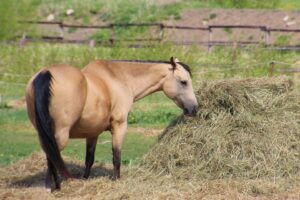
Difference between faecal water and diarrhoea
Although faecal water and diarrhoea are often mentioned in the same breath, they are in fact different digestive tract disorders:
- Faecal water: watery faeces is the excretion of excess fluid from the intestines that has not been sufficiently absorbed through the intestinal walls. This fluid is excreted before, after or independently of the actual defecation. Watery faeces causes noticeable soiling on the horse’s hind legs, but the faeces themselves remain shaped. The causes of faecal water can be an imbalance of intestinal bacteria, incorrect fermentation in the large intestine, excessive amounts of grass or silage and mycotoxins.
- Diarrhoea: In contrast, diarrhoea occurs when the large intestine is unable to remove sufficient fluid from the feed mash. This leads to mushy to liquid faeces. Horses with diarrhoea often have a loss of appetite, appear exhausted and defecate more often. Diarrhoea upsets the balance of the intestinal flora, which can lead to a considerable loss of fluids and electrolytes. Severe cases must be treated immediately by a vet, as the risk of dehydration and other complications is high.
Causes of faecal water and diarrhoea
The causes of these digestive problems are varied and can be triggered by both internal and external factors. Some of the most common causes are summarised below:
- Worm infestation: an infestation of parasites such as worms can damage the horse’s intestinal wall and lead to diarrhoea. It is advisable to have faecal samples tested regularly for parasites and diarrhoea pathogens and to adjust worming treatments accordingly.
- Infections: Bacterial or viral infections can also cause diarrhoea. If the horse also has a fever, the vet should be consulted to diagnose the cause and treat it accordingly.
- Errors in the feed ration: Too much concentrated feed, high-fat or indigestible food and an unbalanced ration can disrupt the intestinal environment and lead to digestive problems. Disproportionate amounts of starch, sugar or fat overload the digestive tract, leading to faecal water or diarrhoea.
- Change of feed and grazing: Horses react sensitively to a change of feed or grazing too quickly. The digestive system needs time to adapt to changes. A slow changeover over several weeks is advisable here.
- Poor quality feed: Spoiled hay, moldy straw or contaminated grain can cause diarrhoea and faecal water as they disturb the delicate balance of the intestinal flora. Regular checks on feed quality are therefore essential.
- Dental problems: Horses that chew poorly or suffer from dental problems ingest larger pieces of feed that are difficult for the digestive tract to process. This can cause both diarrhoea and watery stools. Regular dental check-ups are particularly important for older horses.
- Stress and psychological factors: Stress caused by a change of environment, unfamiliar situations or pressure to perform can cause digestive problems in horses. A calm and stable environment helps to reduce stress and prevent digestive disorders.
- Ingestion of foreign bodies: Sand, soil or stones that are ingested via the food or the floor irritate the intestines and can also lead to diarrhoea.
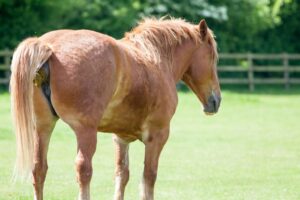
Preventive measures and tips
Careful feeding and care is necessary to prevent digestive problems in horses. Here are some measures and tips that can help:
- Light diet for acute problems: If your horse shows signs of diarrhoea, you should switch it to a bland diet. Good hay and fresh water are usually enough to calm the gastrointestinal tract. Avoid fruit and fresh grass, as these foods can make diarrhoea worse.
- Roughage as a basis: Hay and other feedstuffs containing crude fibre stabilise the intestinal flora. Sufficient hay should be fed, especially at the beginning of the grazing season, to balance digestion and prevent the intake of too much fresh grass.
- Pro- and prebiotics: Preparations such as pectin, yeasts or special feed supplements support the regeneration of the intestinal flora and help to stabilise the digestive tract.
- Electrolytes and fluids: Your horse loses a lot of fluids and electrolytes during diarrhoea. Make sure it drinks enough water and consider adding special electrolytes to make up for the loss.
- Slow feed changeover: Gradually adapting the feed over several weeks significantly reduces the risk of digestive problems. A slow approach is also important when grazing so that the horse can get used to the nutrient-rich grass.
- Herbs for support: Herbs such as camomile, lemon balm, aniseed or yarrow have a calming effect on the gastrointestinal tract and can help to stabilise diarrhoea or after intestinal infections.
- Regular health checks: Your horse’s teeth and general health should be checked regularly in order to recognise and treat digestive problems at an early stage.
Digestive problems in short:
Faecal water and diarrhoea are common digestive problems in horses that can be triggered by various causes such as feeding errors, parasites or stress. With the help of a balanced diet, regular health checks and the use of special products such as Gut Restore, Gut Cleanse, Liquid Gold, Seabuckthorn, and Verm-Cleanse, your horse’s digestion can be effectively supported. If digestive problems persist or are severe, a vet should always be consulted.
Thunderbrook products to support digestion
Thunderbrook offers a range of products aimed specifically at supporting gut health and preventing digestive problems. Here are some of the key products:
- Gut Restore: This probiotic helps to regenerate the intestinal flora and promote the balance of bacteria in the digestive tract. In horses with diarrhoea, the administration of Gut Restore can help to stabilise the intestinal flora and support the healing process. With its combination of prebiotics and probiotic cultures, it promotes healthy digestion and prevents digestive disorders.
- Gut Cleanse: Gut Cleanse is a gentle means of cleansing the intestines of harmful substances and promoting intestinal health. It contains a blend of natural herbs that relieve the digestive tract and support the balance of intestinal flora. This product is ideal for stabilising digestion after a change of food or in the event of stress.
- Verm-Cleanse: This product can be fed complementary to deworming to help to rid the intestines of parasites and supports healthy intestinal function. Deworming is particularly important for horses with chronic digestive problems such as diarrhoea, as parasites are often a major cause of intestinal disorders. Regular use of Verm-Cleanse helps to create and maintain a healthy intestinal environment and a digestive system which helps to eradicate and expel intestinal challenges. A complementary feed for equines.
- Liquid Gold: Liquid Gold is an oil that contains essential fatty acids and antioxidants. It has a soothing effect on the intestinal walls and supports the absorption of nutrients. For horses with sensitive digestive tracts, it can help to reduce inflammation and protect the intestines. Liquid Gold is ideal for horses prone to faecal water or diarrhoea as it promotes overall gut health. Liquid Gold has been formulated to be fed alongside Thunderbrook Gut Restore, UlsaGon or Ulsa-X.
- Seabuckthorn: This supplement contains sea buckthorn, which is known for its anti-inflammatory and gut-stabilising properties. It supports the mucous membranes in the gut and can help to strengthen the gut barrier, which can be particularly helpful for horses with faecal impaction. Sea buckthorn is rich in antioxidants and helps to strengthen the immune system.

